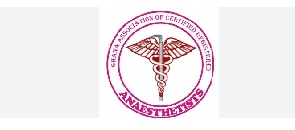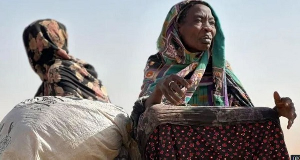The Ghana Association of Certified Registered Anaesthetists (GACRA) has disclosed that more than 30 percent of its members departed the country for better opportunities in 2023.
It said that aside from the alarming figure diligent, skilled, and experienced professional CRAs left their posts, emphasizing that, "this has brought about undue stress on the few left" citinewsroom.com reports
Speaking at the fifth Annual General Meeting (AGM) and Scientific Conference of the GACRA held in Bolgatanga, Mr. James Nwisangra, President of the association, highlighted this concerning trend.
The event centered around the theme: "Sustaining the practice of anaesthesia in Ghana amidst the brain drain; policy direction and regulation."
Expressing worry over the situation, Mr. Nwisangra emphasized that the situation may worsen and affect anaesthesia practice in the country.
“I am told many, including some present in the conference, have intentions of leaving.”
He pinpointed several factors fueling the departure of skilled professionals, including the absence of career advancement, inadequate service conditions, improper placement on the Single Spine Salary Scale, absence of a structured service scheme, and regulatory hurdles.
Mr. Nwisangra said Ghana has approximately 1200 CRAs serving over 32 million people.
“This gives us a ratio of 1:26, 650.43. This is an unfortunate situation which clearly shows the magnitude of work on the CRA.”
Regarding the importance of their role in healthcare, he emphasized that their specialty encompasses reviving the health of the sick, injured, critically ill individuals, newborns, and those requiring intensive care.
“This can only be done by the trained anaesthesia provider that is the CRA or the Anesthesiologist and not any other person. All emergency situations in our health institutions are centered on the Anaesthetist,” he emphasized.
Re-elected for another four-year term as the Association's President during the conference, Mr. Nwisangra voiced his worries about the poor condition of service, citing issues such as insufficient workplace amenities, lack of accommodation, and inadequate equipment.
He mentioned that the GACRA had submitted a detailed document outlining service conditions to the Fair Wages and Salaries Commission (FWSC) and was currently awaiting negotiations.
Despite both parties having signed the rules of engagement, there was a notable delay in the negotiation process.
“FWSC, the employer, and stakeholders should speed up the process to enable us to have improved conditions of service for the CRA.”
Mr. Nwisangra also highlighted a concerning rise in diseases like cancer, kidney, and liver ailments within Ghana, previously uncommon among the population.
He added that research linked these diseases to pollution and contamination of rivers and water bodies due to illegal mining activities, unregulated chemical usage on farms, substance abuse, and increased alcohol and drug consumption among the youth.
The Association urged the government to take practical measures to curb illegal mining and the use of harmful chemicals on agricultural lands to safeguard the lives of citizens.
Speaking on behalf of Dr. Samuel Kwabena Boagye-Boateng, the Upper East Regional Director of the Ghana Health Service, it was emphasized in a speech that the conference's theme was pertinent and timely, especially considering the departure of health professionals seeking better opportunities abroad.
He said the trend, if not checked, would have dire consequences on the health status of the citizenry.
He appreciated the importance and invaluable roles of anaesthetists in quality healthcare delivery.
“The migration of anaesthetists and other health professionals to other countries in search of better conditions of service should be a cause of worry for all people living in Ghana, and if this is not checked or minimized, will affect access to quality healthcare, which will impact negatively on our health status,” he said.
RAD/OGB
Health News of Monday, 11 December 2023
Source: www.ghanaweb.com













